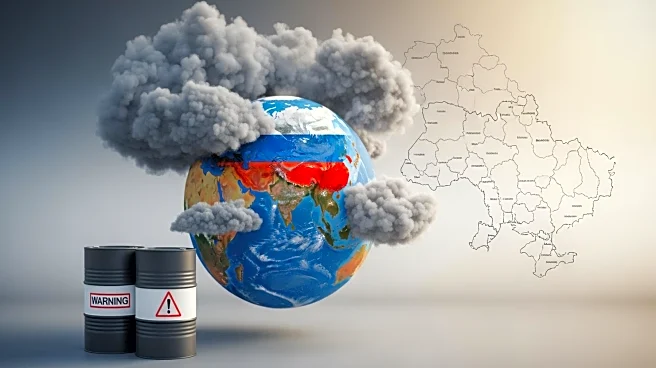What's Happening?
President Trump has imposed significant sanctions on Russia's largest energy companies, Rosneft and Lukoil, as part of the U.S. response to the ongoing conflict in Ukraine. These sanctions are among the most substantial economic measures taken by the West
since the war began in 2022. The sanctions restrict these companies' access to U.S. financial markets and services, aiming to exert economic pressure on Russia. Despite these measures, some unsanctioned Russian energy firms continue to operate, maintaining a degree of influence in the global energy market.
Why It's Important?
The sanctions are expected to have a chilling effect on Russia's energy sector, potentially disrupting its economic stability and reducing its capacity to finance military operations. By targeting key energy firms, the U.S. aims to weaken Russia's economic foundation, which is heavily reliant on energy exports. This move could also influence global energy markets, affecting prices and supply chains. The sanctions reflect the U.S.'s strategic use of economic tools to support Ukraine and deter further Russian aggression.
Beyond the Headlines
The sanctions raise questions about the long-term impact on global energy markets and the potential for increased geopolitical tensions. As Russia seeks alternative markets and partners, the sanctions could lead to shifts in global energy alliances and trade patterns. Additionally, the effectiveness of sanctions as a tool for achieving political objectives remains a topic of debate, with potential implications for future U.S. foreign policy strategies.
















